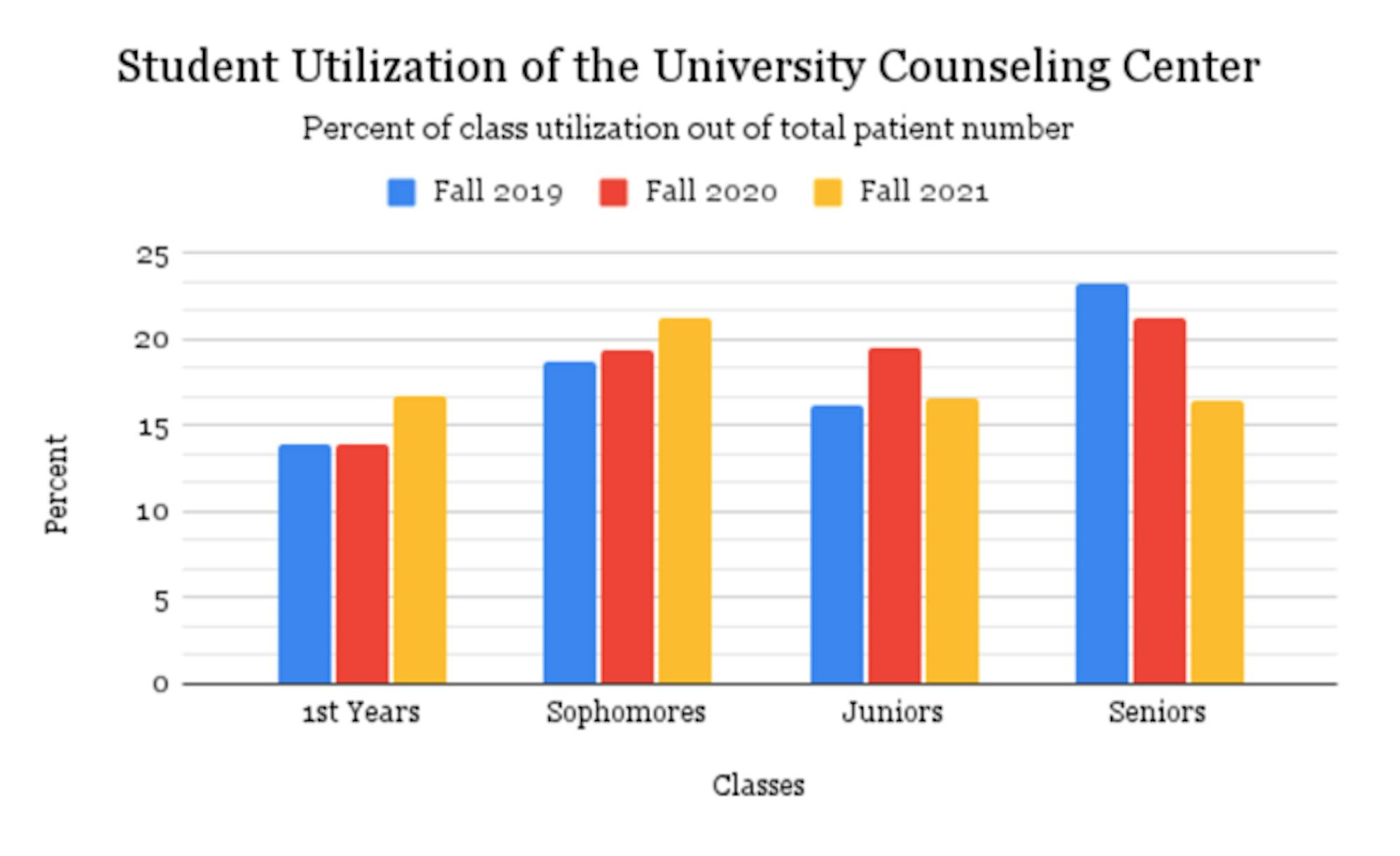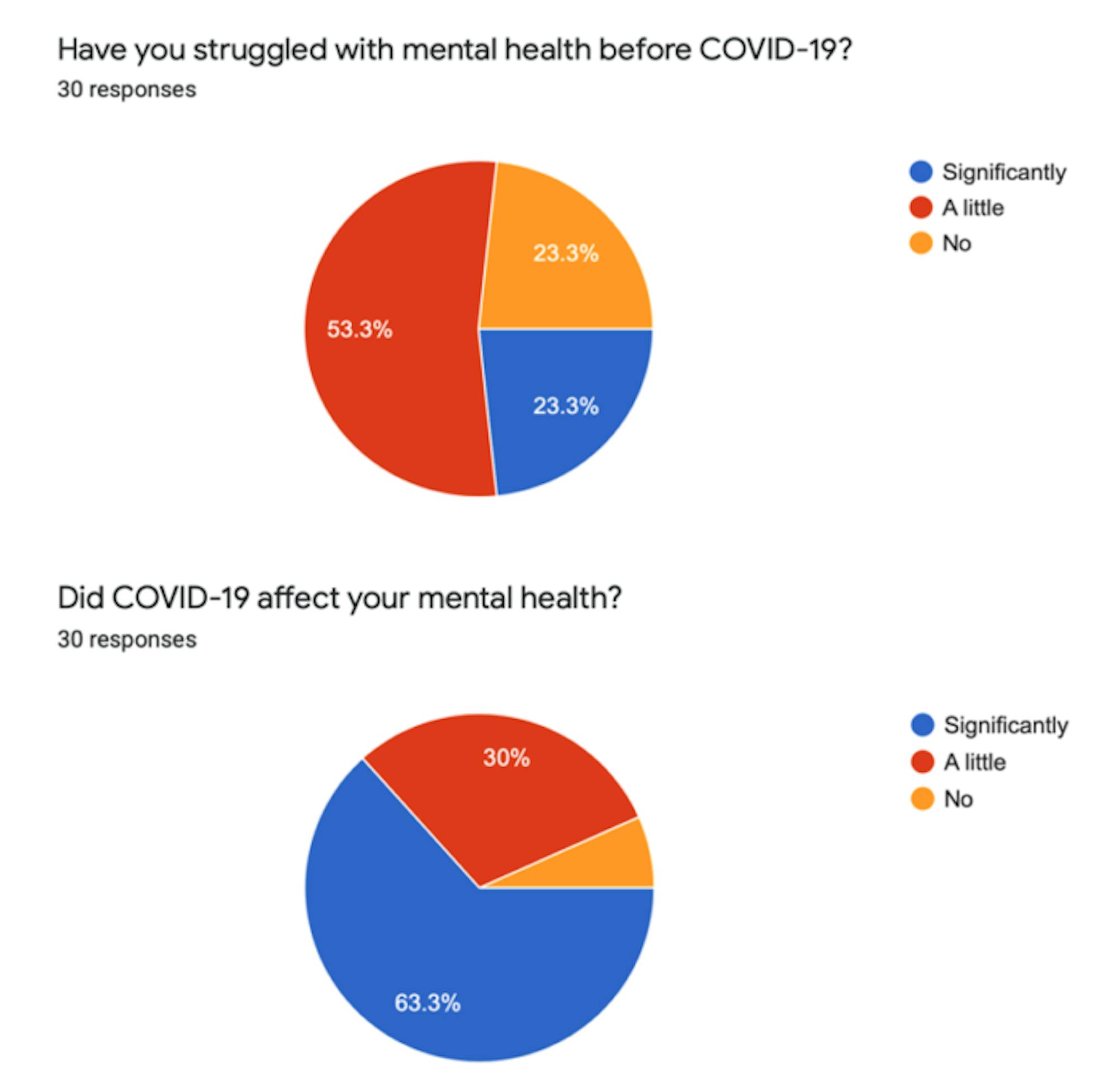Editor’s Note: Mental health resources can be found on the Notre Dame, Saint Mary’s and Holy Cross websites.
COVID-19 has upended normalcy across the globe, and at the University of Notre Dame, the class of 2024 has felt the brunt of the pandemic’s impact.
With a vaccination requirement and the disappearance of masks in certain places on campus for the fall of 2021, things seemed to be returning to normal; however, the sophomore class has seemingly had a tougher transition out of the pandemic than other groups on campus.
Christine Conway, the director of the University Counseling Center (UCC), said the data the center collects confirms that sophomores have had a difficult time adjusting during the fall semester. The UCC offers a variety of ways to receive mental health support, but the main way to access counselors is through drop-in hours. After meeting with a drop-in counselor, Conway said, the staff will assess the student’s needs for more formal counseling.
Sophomores have utilized the UCC’s offerings significantly more than the other three undergraduate classes, making up 21.2% of the total patients in the fall of 2021 compared to around 16% for each of the remaining undergraduate classes.
Conway said she attributes this change to many things, but in particular, stress from the COVID-19 pandemic.
“Life is harder, we’re struggling... Maybe it just makes us have less resilience in areas or the stress of academics takes a bigger toll because we are maxed out in life in general,” Conway said. “It doesn’t take much to feel like you’re overwhelmed; where before the pandemic, it probably took more to reach that feeling of being overwhelmed.”
Megan Brown, director of Notre Dame’s McDonald Center for Student Well-Being (McWell), said she understands the sophomore class may be facing a specifically challenging transitory time in their lives.
“Transition is the most stressful time in human beings’ lives, even if it’s a happy transition like getting married or graduating,” Brown said. “But you put all of that on a young person with all the uncertainty that is going on... It’s understandable that the sophomore class [may] be challenged the most.”
Brown said McWell’s purpose on campus is to promote healthy habits and work at preventing mental health issues by teaching students how to thrive. The center provides many offerings to help students learn and practice self-care, including workshops, sleep programs and restoration spaces that are available for students to reserve.
In a survey taken by 30 Notre Dame sophomores, 53.5% said they struggled a little with mental health before COVID-19. But, when asked if the COVID-19 pandemic impacted their mental well-being, 63.3% reported significant changes in their mental state.
This is especially true for sophomore Emily Meneses, who said she used Care and Wellness consultants at the beginning of the fall 2021 semester to help her through a difficult transition. But, she said she felt they didn’t provide much support.
Meneses explained that she reached out to Sara Bea Accessibility Services in order to receive an accommodation, but said it took the center weeks to get back to her and they bounced her around to different campus offices before she was offered an accommodation. Meneses said that afterwards, a counselor was supposed to check in with her but never did.
Meneses said her friends have had similar experiences when they needed assistance from the University and said Notre Dame needs to devote more resources to helping students.
“I just feel like if the University put more time into figuring out how they can get a bigger and more established cohort of people who can help us mental-wise, that’d be great,” she said.
Brown said she thinks the best way to move forward and provide more help to students in need would be to focus more brainpower and energy on this crisis and thus come together as a campus community.
“I think we have to come together as a community and talk and listen and understand,” Brown said. “We really need to see how this [pandemic] is impacting people — students — and what is going on for students, so that we can make the right interventions.”
Students should know that their response to the pandemic is normal, Brown said, but that they don’t have to struggle in silence.
“It’s a tough thing to do if you haven’t had to do it before, but college is a great time to learn how to make your well-being a priority,” she said. “This University has a lot of resources that can help with that.”
Notre Dame sophomores struggle to adjust amidst pandemic, utilize counseling at higher rates
A bar chart comparing class utilization data courtesy of the University's Counseling Center.
A bar chart comparing class utilization data from the University’s Counseling Center.
Charts comparing survey data collected from 30 sophomores surveyed about the COVID-19 pandemic’s impact on their mental health.









